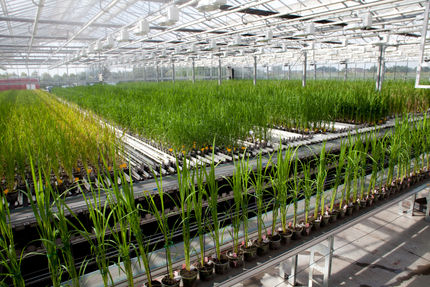DuPont CEO Says Benefits of Biotechnology Here Today, More on the Way
Progress Being Made on Acceptance, New Applications of Biotechnology
Tokyo. DuPont Chairman and CEO Charles O. Holliday, Jr. said significant progress has been made in demonstrating the benefits of biotechnology, in its acceptance, and in the advancement of new and exciting products the technology is making possible.
"We can now say that biotech has been established as one tool, among many, for feeding the world sustainably - a tool that producers and consumers around the world will increasingly depend on," Holliday said, speaking at Asia's largest biotechnology conference, BioJapan 2004.
He noted that plant biotechnology has been adopted faster than any other technology in the history of agriculture. In eight years, farmers in the United States have converted 81 percent of soybeans, 73 percent of cotton, and 40 percent of corn to biotech varieties. The amount of biotech crops planted globally is increasing every year with the fastest growth coming outside North America.
"Companies can't drive that kind of adoption. It occurs because people see the value," Holliday said.
The value goes well beyond the farmers who choose to grow the crops. Holliday said that many overlook the importance of productivity improvements that biotechnology is helping sustain. "Where would we be today, if in 1950 someone had decided we had enough grain in the world and we had stopped investing in improved genetics?" he asked.
"Since 1980, the world's corn growers have increased their production by 45 percent and done it on less than a 5 percent increase in acres. In effect, we've added 130 million 'virtual' acres by improving corn genetics, technology, and management practices. Think of the impact on our world if we did not have those 130 million 'virtual' acres," Holliday said.
Both large and small farmers are using biotechnology today to grow more while reducing the spraying they need to do, Holliday said. And there are many other benefits on the horizon.
Biotechnology is allowing DuPont to develop products like drought- resistant crops, bio-fuels and biomaterials, Holliday said. The benefits in industrial applications could far outstrip the contribution of biotechnology to medicine and agriculture.
"We are working to create new manufacturing platforms based on biotechnology that significantly lower cost and investment or offer an improved environmental performance," said Holliday. "We are solving problems that cannot be solved by existing approaches."
Holliday acknowledged that the technology is not without its critics and challenges. But he said DuPont continues to be committed to pursuing the promise of biotechnology for its customers in a careful and transparent manner. "We understand that continued open and transparent dialogue with consumers and governments will be necessary for this tool - biotechnology - to achieve its maximum utility," he said.
The company formed an external global Biotechnology Advisory Panel in 2000, which helped the company create its Bioethics Guiding Principles. The DuPont Biotechnology Advisory Panel is in the process of completing its second independent report on DuPont and its application of biotechnology. A listing of advisory panel members, their reports, and the DuPont Bioethics Guiding Principles, and extensive information on its biotech products are available at http://www.dupont.com/biotech.
"We are convinced that biotechnology can and is being employed successfully and safely to the benefit of people everywhere," Holliday said. "It will make great contributions to meeting human needs in the 21st century."
Topics
Organizations
Other news from the department business & finance

Get the life science industry in your inbox
By submitting this form you agree that LUMITOS AG will send you the newsletter(s) selected above by email. Your data will not be passed on to third parties. Your data will be stored and processed in accordance with our data protection regulations. LUMITOS may contact you by email for the purpose of advertising or market and opinion surveys. You can revoke your consent at any time without giving reasons to LUMITOS AG, Ernst-Augustin-Str. 2, 12489 Berlin, Germany or by e-mail at revoke@lumitos.com with effect for the future. In addition, each email contains a link to unsubscribe from the corresponding newsletter.























































